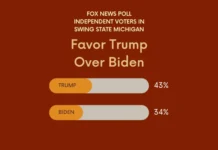Unraveling the Global Web of Transnational Assassinations: Exposing the Iranian Regime’s Repressive Reach
The U.S. Department of the Treasury’s Office of Foreign Assets Control (OFAC) and the United Kingdom jointly announced on January 29, 2024, a comprehensive and coordinated effort to confront an Iranian transnational assassination network. This network is responsible for orchestrating transnational acts of repression. The network, led by Iranian narcotics trafficker Naji Ibrahim Sharifi-Zindashti, operated at the behest of Iran’s Ministry of Intelligence and Security (MOIS). Hence, targeting Iranian dissidents and opposition activists globally including Western Nations.
In a parallel move, the U.S. Department of Justice and the Federal Bureau of Investigation unsealed an indictment. Consequently, further underscoring the severity of the allegations against the transnational assassination network. In addition, the United Kingdom designated Mohammad Reza Ansari, building on the prior designation by OFAC.
Related Article: Former President Trump Opposes Pressures on RNC to Become Presumptive Nominee
Under Secretary of the Treasury for Terrorism and Financial Intelligence, Brian E. Nelson, stressed the significance of international collaboration. Under Secretary Nelson stated, “The United States, alongside our international allies and partners, including the United Kingdom, will continue to combat the Iranian regime’s transnational repression and will utilize all available tools to stop this threat, especially on U.S. soil.”
Sanctions and Designations:
The actions were rooted in Executive Order (E.O.) 13553. Consequently, granting authority for sanctions against individuals involved in serious human rights abuses by the Iranian Government. Furthermore, the MOIS who was implicated in such abuses, received this designation on February 16, 2012.
Iranian Transnational Repression:
The MOIS and Iran’s Islamic Revolutionary Guard Corps (IRGC) have systematically targeted regime opponents globally. Thus, the Treasury has consistently addressed Iranian transnational plots within the United States. Accordingly, underscoring instances such as the October 2011 plot to assassinate the Saudi Arabian Ambassador and the December 2023 designations of Iranian intelligence officers recruiting individuals for operations in the U.S.
Related Article: FBI’s Extensive Financial Monitoring Activities of American Citizens
Key Associates and Designations:
Naji Ibrahim Sharifi-Zindashti and his network, intricately linked to multiple murders across continents, are designated for materially supporting MOIS. Moreover, essential associates include Reza Hamidiravari, Nihat Abdul Kadir Asan, Ekrem Abdulkerym Oztunc, and Shahram Ali Reza Tamarzadeh Zavieh Jakki.
Assassination Plot in the United States:
In 2021, Zindashti’s network collaborated with Canadian national Damion Patrick John Ryan and Hell’s Angels affiliate Adam Richard Pearson to assassinate Iranian dissidents in the U.S. As a result, both Ryan and Pearson, with connections to criminal elements in Canada, the United States, and Greece, are currently incarcerated abroad on unrelated criminal matters.
Related Article: Fani Willis, Fulton County DA, Under the Microscope for Alleged Relationship with Special Prosecutor in Trump Case
Additional Assassination and Kidnapping Plots:
Zindashti’s involvement in MOIS-sponsored operations spans multiple incidents, including the 2020 abduction of Habib Chaab, the 2019 assassination of Mas’ud Vardanjani, and the 2017 murders of Saeed Karimian and Muhammad Mer Almuntari. Consequently, individuals such as Abdulvahap Kocak, Ali Kocak, Ali Esfanjani, and Muhammad Reza Naserzadeh are designated for their roles in supporting these actions.
Sanctions Implications:
As a result of these actions, all property and interests in the U.S. belonging to these individuals must be blocked and reported to OFAC. Thus, engaging in transactions involving these designated persons by U.S. persons or within the U.S. is strictly prohibited. Foreign financial institutions facilitating significant transactions for these individuals may face severe consequences, including U.S. sanctions according to U.S. Department of the Treasury’s Office of Foreign Assets Control (OFAC).
U.S. Department of the Treasury’s Office of Foreign Assets Control (OFAC)
The power and integrity of OFAC sanctions derive from its ability to designate and add persons to the Specially Designated Nationals and Blocked Persons List (SDN List). The ultimate goal of sanctions is not to punish but to bring about positive change in behavior.














